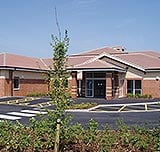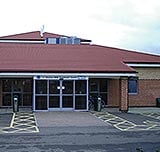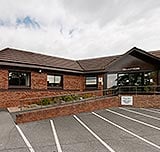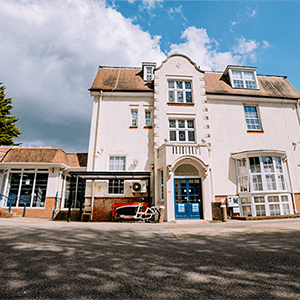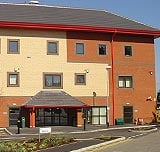

Mrs Priya Prakash
Mrs Priya Prakash is a Consultant Ophthalmologist in Hertfordshire and Essex with a special interest in Cataract Surgery.
View ProfileA cataract causes a lens of the eye to become cloudy which can cause reduced vision and can deteriorate over time. The most common cause is age, but scientists also suspect diabetes, alcohol and smoking may have a role to play in the development of cataracts. Cataract surgery is a procedure that replaces the cloudy lens with an artificial lens to improve the vision.
From birth, our eyes have a clear lens which is made up of a unique balance of water and protein, working in tandem to allow light to pass through the eye. As we age, the quality of the protein degrades and can gather together in clusters. This makes it harder for the light to pass through the protein, and consequently the lens, reducing vision and making things appear a bit blurrier.
Cataract surgery is a type of eye surgery to remove a cataract (cloudy lens) and replace with an artificial lens to improve vision.
Cataract surgery is one of the most common surgeries performed in the UK every year. Many thousands of UK patients undergo cataract operations successfully, improving their quality of life and the clarity of their vision.
Cataracts will never go away on their own; surgery is the only treatment. Cataract surgery is a very common and straightforward day case procedure, that aims to give you improved eyesight.
You may consider cataract surgery if your vision problems are interfering with daily activities and affecting your quality of life, preventing you from doing the things you love, such as hobbies.
Cataract symptoms may not be apparent at first, but they usually worsen gradually over time. You should see an optometrist or ophthalmologist to discuss the best timing for surgery, based on your individual circumstances.
Following your cataract operation, you should be able to:
One of the greatest benefits of cataract surgery is an increased quality of life. With better vision you can enjoy many lifestyle benefits, such as reading, working, driving, socialising and, playing sport, as well as greater independence, safety and a reduced likelihood of falling. This, in turn can also improve your self-confidence and mental health.
Cataract surgery is a very common procedure and is generally considered safe. Problems after cataract surgery are rare, but there are some slight risks as with all types of operation.
Potential risks and complications include:
If you are having the procedure under local anaesthetic, you can eat and drink as normal on the day of surgery. However, if you are having the procedure under general anaesthetic, you may be advised to fast prior to your procedure and to stop taking any medication that could increase your risk of bleeding, during cataract surgery. This will be all be confirmed as part of your pre-assessment.
Read more information around preparing for your surgery before coming into a hospital and information during your stay here.
A week or so prior to surgery, you will have a pre-assessment with an ophthalmic nurse. This will also give you the opportunity to discuss any final questions around your surgery and recovery.
1.The nurses will check you in and carry out all the pre-operation tasks, including measuring your blood pressure and blood glucose level if you are diabetic. The nurse then administers the medication (drops or pellet) to dilate (enlarge) your pupils ready for the surgery.
2. The surgical team will visit you before surgery to check everything is in order and answer any questions or queries that you may have.
3. When the time comes for your surgery, you will be taken to the operating theatre where we will check your details again.
4. The appropriate anaesthetic will then be given to you. This is usually just anaesthetic eye drops administered beforehand, with additional anaesthetic given inside the eye during the operation. In some cases, you may be given an injection around the outside of the eye (called a sub-tenon's injection) before the operation.
5. The operation will then take place, and will take around 30 minutes to complete. There will be a bright light from the microscope which you will get used to. The surgeon will place a small clip - this will help you from blinking during the operation.
6. At the end of the procedure, you will have a shield to protect your eye. Don’t worry if your vision is blurry immediately following the procedure, this will gradually get better. You will then be taken back to the day-case unit and be advised to eat and drink as normal following surgery.
A cataract operation is a quick and straightforward day case procedure. It is usually performed under local anaesthetic and takes around 30 minutes to complete. You may be at the hospital for a period of up to 3 hours.
The hospital will advise a time you need to arrive there for the pre-surgery checks. They will also advise how long you will need to stay at the hospital for after the surgery, before they can discharge you, so you can arrange transport.
You can expect your vision to start improving after a few days, sometimes patients see much better the day following surgery. You may experience some blurring at first, this should be during the recovery period as your eye heals and adjusts.
After your surgery, colours may seem brighter because you are looking through a clear, new lens.
You will be prescribed antibiotic eye drops to prevent infection and some anti-inflammatory drops to help with irritation, red eye and light sensitivity, which are the most common eye symptoms post cataract surgery.
In most cases, full recovery from cataract surgery can take anything from 2 to 8 weeks. There should be little pain or discomfort during this period.
Most patients get a foreign body sensation or irritation in the eye after surgery. This typically last from 2-4 weeks but the eye drops prescribed by your surgeon post-operatively help with this.
The recovery period following cataract surgery is generally not painful, some patients experience minor discomfort. Most patients get a foreign body sensation or irritation in the eye after surgery. This typically last from 2-4 weeks but the eye drops prescribed by your surgeon post-operatively help with this. Other symptoms that can be experienced are:
If you experience any of the following symptoms following surgery, call your doctor right away:
Cataract surgery may be covered by your medical insurance policy. We advise you to check directly with your insurance provider and get written confirmation before commencing treatment.
If you decide to pay for your cataract treatment, it is easier than you think to access private hospital treatment. At Ramsay Health Care, we offer a range of ways to fund treatment, giving you the flexibility to choose which option best suits you and your finances. You can also spread the cost of your treatment with finance options available.
Your nearest Ramsay hospital will be able to give you a price for the surgery.
If you are experiencing any cataract symptoms you should book an appointment with an optometrist or ophthalmologist. Early treatment can help improve your vision and lead to a better quality of life.
At Ramsay, we have highly skilled and experienced consultant ophthalmologists who can offer fast and convenient appointments for cataract surgery at a Ramsay Hospital near you.
Many patients are eager to resume driving however we recommend refraining from driving for at least 24 hours post-surgery to allow your vision to stabilise. It is possible to drive the following day after surgery, providing you can see the number plate at the required distance for DVLA standards and if you don’t see double. If you are unsure about your specific situation, please ask your surgeon for advice.
There are no limitations to when you can fly after cataract surgery. You will have to take your post-operative eye drops with you and administer them as instructed by the surgeon and on the plane if you take a long haul flight.
Surgery on the second eye can occur at anytime after the first eye. Typically, patients prefer to wait for the first eye to heal before embarking on surgery to the second eye. However, there are exceptions when the two eyes are operated quite close together as this provides better balance for the patient and stops them getting double vision. Your surgeon will discuss with you specifically the best way forward with regards to your personal situation.
Cataract surgery usually lasts forever.
In some patients up to 30% they can develop a clouding of the vision at a later stage typically many months and years after the original surgery due to the development of clouding of the capsule supporting the lens implant.
This can be rectified easily with a simple laser procedure (yag laser capsulotomy) done in outpatients.
The standard lens usually inserted during cataract surgery, is a Monofocal Lens which corrects your distance vision but does not correct any astigmatism or allow you to see up close without the requirement for glasses.
It is possible for your surgeon to insert a lens which corrects your astigmatism and allows you to see up close without the need for spectacles.
The different types of lenses are outlined below:
These include:
There is usually an additional premium cost to the 'corrective lenses' which are not routinely used, if an insured or self-funding patient wants to explore this option. Your surgeon can discuss the options which are available to you, and which is the most appropriate lens to be implanted in your specific situation.
Initially you will be advised to sleep with the shield on for one week following surgery.
There are no restrictions with watching TV following cataract surgery, you can watch TV normally. However, you might experience some discomfort after prolonged straining initially.
You will definitely need reading glasses with standard lens implants and your spectacle prescription will change after surgery. So the downside could be, you will need new glasses.
To prevent soreness, redness or splashing soap in the eye it is advised not to shower after cataract surgery. You can gently dab your face with clean towel and shower your body normally.
You can start doing gentle activities from the next day following surgery, it is advised to avoid anything too strenuous.
Your prescription will change after the surgery. You can ask your optician to remove the lens off the operated side.
You can start going outside the day after surgery, but it’s advised to avoid dusty environments.
The wound is a self-sealing 2.5 mm wound. You are advised to refrain from heavy weight lifting and strenuous activities during the healing period as a precautionary measure.
Complete healing takes up to 6 weeks. Your optician will prefer to issue a new prescription after 6 weeks.
You will be awake during the surgery under local anaesthetic.
It would be best to avoid swimming until the course of treatment is finished.
You might see haloes around bright light at night. If you have astigmatism, you might also see shadow around letters.
The most feared complication following cataract surgery is infection or bleeding however fortunately these complications are very rare.
When you don’t have a problem with your vision. Also if the eye has had significantly poor vision since childhood or there has been any irreversible damage to the eye.
It takes time to adapt to the new prescription, especially when you are waiting for your second eye to be operated.
Generally, over 60 years of age, however a cataracs can result following trauma which can happen at any age.

Mrs Priya Prakash is a Consultant Ophthalmologist in Hertfordshire and Essex with a special interest in Cataract Surgery.
View Profile

